National Clinical Certification Exam Award Winners
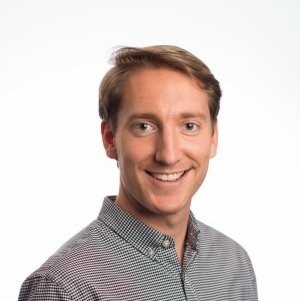
2018 Winner
Lewis Smith, MSc, Aud(C)
SCSD Aud'17
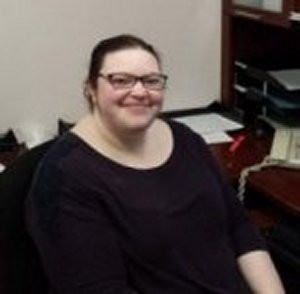
2016 Winner
Laura Hart, MSc, Aud(C)
SCSD Aud'15
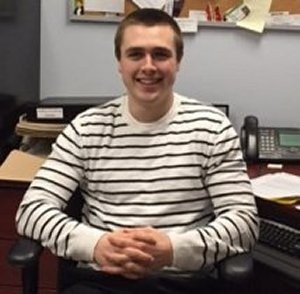
2015 Winner
Alexander Colquhoun, MSc, Aud(C)
SCSD Aud'14
National Clinical��Certification Exam Award
Awarded to the SAC member in each profession who attains the highest score on the clinical certification exam during the previous calendar year. Listed above are three SAC members (and SCSD graduates) who have earned this distinction.
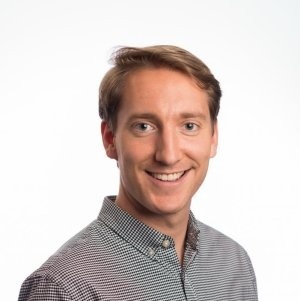
Lewis Smith, M.Sc., Aud(C)
Biography
Lewis Smith completed his bachelor of science degree in biochemistry at UBC Okanagan, and his master of science degree in audiology at ��ɫֱ��. Since graduating, Lewis has worked at McNeill Audiology, a private practice clinic on Vancouver Island. Lewis has a particular interest in diagnostics and counselling. His graduate research project focused on hidden hearing loss and was awarded the project with the greatest academic merit within ��ɫֱ��’s School of Human Communication Disorders.
Image credit: McNeill Audiology | Text:�� Speech-Lanaguage and Audiology Canada (SAC)
��
And another School of Communication Sciences and Disorders receives a national award...
Isabel Richard Student Paper Award��- Below Doctoral Level
Presented to a SAC student associate for the best paper written on a specific topic related to the professions. Papers are judged on both style and content. Judges look for writing that is clear, articulate and logically organized. Content is judged on accuracy of facts presented and originality and innovativeness of ideas and opinions expressed.��
Topic: How will each patient or client’s cultural and linguistic background influence the speech-language pathology or audiology services you provide?
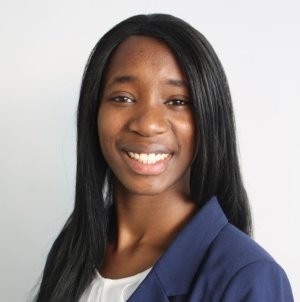
Eleanor Campbell, B.A, M.Sc. candidate
Biography
Eleanor Campbell grew up in Markham, ON and is a third year master’s degree student in the speech-language pathology program at ��ɫֱ��. Eleanor completed her undergraduate degree in linguistics and psychology at the University of Ottawa in 2015. She has volunteered as an undergraduate research assistant in the Centre for Child Language Research Lab at the University of Ottawa, helping with research on child language development.
Eleanor has spent time volunteering with adults with aphasia, as well as working with children as a camp counselor and as a gymnastics coach. These experiences have helped Eleanor develop and continue her passion for working with children, adolescents and adults with and without disabilities.
Eleanor has also been involved with ��ɫֱ�� Toastmasters — a public speaking and leadership club — as the club’s treasurer. This experience provided the chance to improve her public speaking skills, specifically spreading awareness about communication disorders and speech-language pathology. After graduating, Eleanor is interested in working with children with Down syndrome and apraxia of speech, as well as working with children and adults with brain injuries.
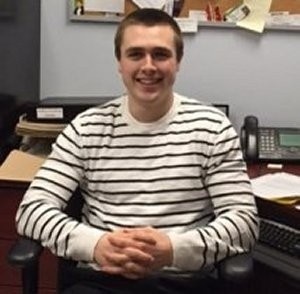
Alexander Colquhoun, MSc, Aud(C) is the recipient of the 2015 National Clinical Certification Exam Award (Audiology). Below, he discusses why he entered the profession, how he prepared for the exam, and what he's done since becoming clinically certified.
How did you get into audiology?
Alexander Colquhoun (AC): I was always really into science. I liked learning about the body and how it works and when I did my undergraduate degree in biochemistry, I really enjoyed learning about the eyes and ears. I had never thought about audiology as a career until I had the chance to shadow an audiologist, which is when I found that I liked the idea of caring for and getting to know people. I enjoy communicating with people and building relationships with them so I chose audiology because of the time spent with people and the science aspect of it. I’m also fairly analytic and found that the field fit my strengths and what I liked doing. Now that I’m in it, it feels kind of like detective work. It’s cool how many tools and kinds of equipment we have at our disposal to figure out what’s going on with someone’s hearing.
How did you prepare for SAC’s clinical certification exam?
AC: The biggest parts of my preparation were my internship and externship experiences. Each experience was a 12-week placement where I got to apply what I had learned in school to a real world setting. One of the audiologists I worked with was particularly helpful — he always sat down with me to go through the more interesting cases we worked on, to make sure I really understood what the results meant and to emphasize how important it is to be a critical thinker. As for actually studying for the exam, I reviewed my notes from the courses I took at ��ɫֱ�� with a friend from school. We spent about 10 nights reviewing material from about 10 courses, doing one course each night, and then I did a booklet of 100 practice questions that really helped to get me in the right headspace to write the exam.
Do you feel that your academic program adequately prepared you for the exam? Did you feel ready to start work after school?
AC: Absolutely. All of the subject material on the test was information I had already covered in school. And I can’t say enough good things about the internship and externship experiences.
What advice do you have for others who are preparing to write the exam?
AC: The schooling at ��ɫֱ�� was fantastic and I really felt like my professors gave me what I needed to succeed on the exam. My advice to others getting ready to write the audiology exam comes down to this: you shouldn’t be worried going in. You’ve been living, breathing and studying audiology for at least two or three years. To be honest, I didn’t feel good when I came out of the exam. I was tired and focusing on the things I had missed. I didn’t feel like I nailed it, which shows that we tend to focus on the things that didn’t go so well.
What value do you see in maintaining your clinical certification?
AC: I needed it to get my job, but besides that, it’s a great way to stay up-to-date in audiology. It encourages you to get involved and keeps giving me a reason to seek out professional development opportunities. I really like education experiences where you get to network and meet audiologists from other parts of the country, because we can learn from each other.
Where are you working now? How does it compare to the career you envisioned for yourself?
AC: I’m currently working at the Upper River Valley Hospital, which is a little hospital in Woodstock, N.B. I couldn’t ask for a better position in audiology. I am the sole audiologist here and, although I didn’t see myself going somewhere where I would be working alone, my school program really made me feel prepared and confident enough to do it. I’m connected to the Dr. Everett Chalmers Hospital in Fredericton and so I talk to the audiologists there weekly about cases, and that’s been a good resource. As far as I know they haven’t started screening my phone calls. One of the nice things about working in a smaller hospital setting is the ability to get involved in other departments and to learn about different kinds of therapy, which is something that likely wouldn’t be as easy in a larger hospital. I have a very supportive manager, who is fantastic, and my colleagues in Fredericton and in the Upper River Valley Hospital are fantastic too. I really can’t say enough good things about them.
